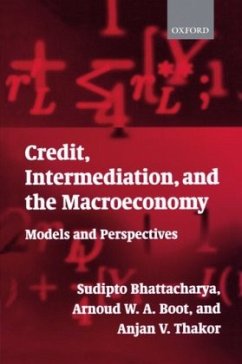Developments in theories of financial markets and institutions, using the tools of the economics of uncertainty and of contracts, as well as results in game theory, have, over the last two decades, constituted an exciting and burgeoning field of research. This collection of readings draws together highlights of the 'second generation' literature in this area, emphasizing the theoretical, institutional, and policy-oriented regulatory implications of some of the key
modelling techniques in the field.
The collection divides into seven sections covering the monitoring role of banks and other intermediaries; liquidity demand and the role of banks and the government; bank runs and financial crises; bank regulation; inter-bank competition and bank firm relationships; comparative financial systems; and imperfect credit markets and the macroeconomy. Each section comprises four articles previously published in top-ranking economics and finance journals, plus a discussion by a prominent scholar,
who provides a synthesis and critique of the literature, and suggests promising directions for future research and application of results.
modelling techniques in the field.
The collection divides into seven sections covering the monitoring role of banks and other intermediaries; liquidity demand and the role of banks and the government; bank runs and financial crises; bank regulation; inter-bank competition and bank firm relationships; comparative financial systems; and imperfect credit markets and the macroeconomy. Each section comprises four articles previously published in top-ranking economics and finance journals, plus a discussion by a prominent scholar,
who provides a synthesis and critique of the literature, and suggests promising directions for future research and application of results.

